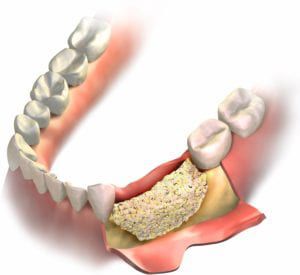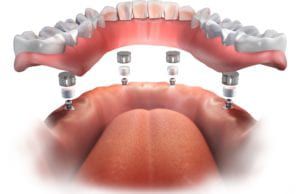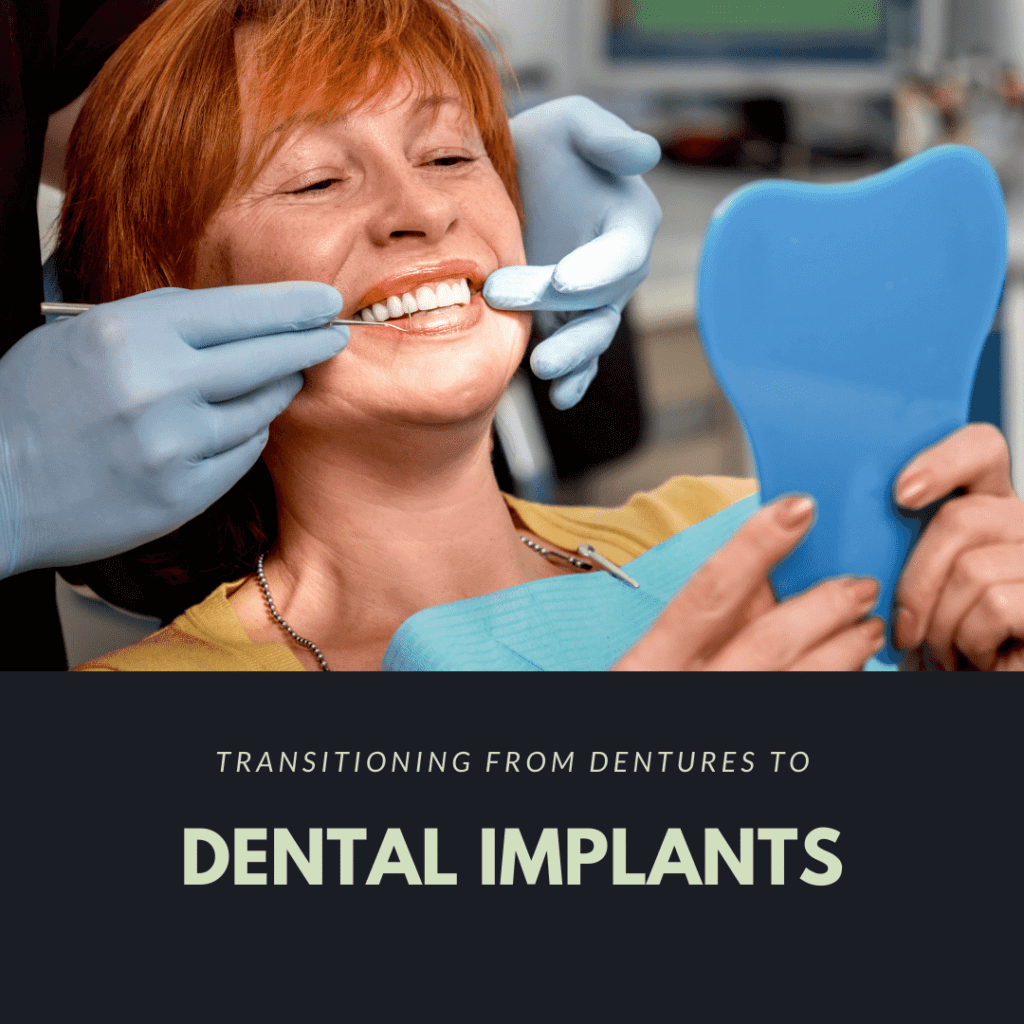When it comes to replacing an entire arch or mouthful of missing teeth, dentures and dental implants are the two options. Most people are familiar with dentures since they have been a part of dentistry for many decades. While dental implants are quickly becoming more popular, they are still not as recognizable as dentures. Perhaps this is one reason why many people still elect to get dentures instead of dental implants. However, many people who get dentures eventually decide that they want to transition to dental implants. When this is the case, there are some things that should be considered:
Why do people want to transition from dentures to dental implants?
There are several reasons why people make the choice to transition from dentures to dental implants, such as:

- Dentures are unable to maintain bone mass, meaning that the jawbone will change in shape so that the dentures no longer fit and will need to be replaced. Dental implants do not need to be replaced like dentures since they can maintain bone mass.
- Since they need to be replaced often, dentures cost more money in the long run than dental implants.
- Dental implants are far more comfortable than dentures since they function like natural teeth, don’t rub against the gums, and remain in place.
- Because dental implants function like natural teeth, they also allow you to eat foods that you wouldn’t be able to chew with dentures.
- Dental implants are more aesthetically pleasing than dentures.
Is transitioning from dentures to dental implants right for me?
Some people may be hesitant to transition from dentures to dental implants since they don’t know if dental implants are the right choice for them. The best way to determine if dental implants are right for you is to schedule a consultation with your local implant dentist. During this consultation, your dentist will examine your mouth and take dental x-rays to evaluate your jawbone. Based on their findings, they can tell you if dental implants are an appropriate choice for you.
What can I expect during the transition from dentures to dental implants?
While this is not always the case, one of the first things you can expect during the transition from dentures to dental implants is to undergo a bone grafting procedure. Since missing teeth cause bone loss in the jaw and dentures cannot prevent this, it is likely that you don’t have enough bone mass to support a dental implant. However, bone grafts are used to place bone material that will grow into new bone that increases your bone mass.
If you require a bone graft, your dentist may recommend waiting about 4-6 months after the procedure before having dental implants placed. This is because this amount of time is necessary to allow new bone to form. In some cases, you may also be able to have a bone graft performed at the same time as your dental implants are placed. This is one of the things that will be discussed during your initial consultation.

The next step to transition from dentures to dental implants is to actually have your dental implants placed. Dental implant placement is a minor oral surgery that is performed under dental sedation. While you sleep, your dentist will make a tiny incision in your gums to expose the jawbone. Then, they will shape the empty tooth socket and place the implant screw. The final step is to place a metal connector on the top of the implant and suture the gums around this connector. To support an implant-supported denture, you will need approximately 4-6 dental implants per each arch.
After your implants have been placed, you will need to spend some time recovering. In most cases, any pain or swelling generally resolves itself in the first week or so. However, you will need to maintain a temporary soft foods diet for about 3-6 months so that your implants can heal. This is because they need to fuse with the surrounding bone in a process called osseointegration. As soon as your implants have undergone osseointegration, you can return to your normal diet.
The final step in making the transition from dentures to dental implants is learning how to care for your dental implants. While traditional dentures are removable, implant-supported dentures remain inside your mouth. Therefore, you will need to care for them by brushing twice a day and flossing once a day. Although implant-supported dentures cannot decay, you still need to maintain proper oral hygiene to prevent gum disease.




